10 Best Herbal Decoctions For Stress
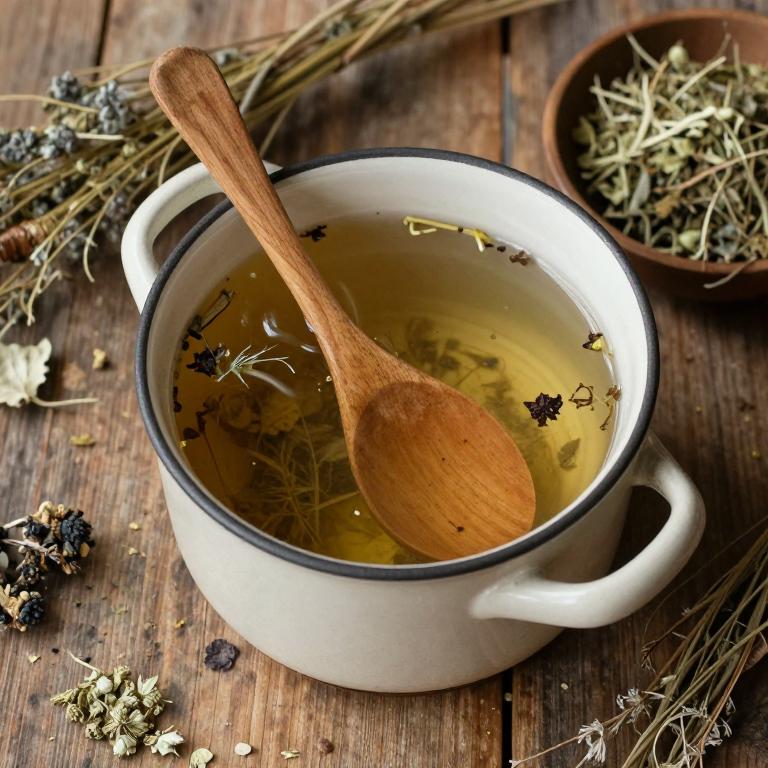
Herbal decoctions have been traditionally used for centuries to help manage stress by promoting relaxation and emotional balance.
These preparations typically involve simmering herbs such as valerian root, chamomile, lavender, and lemon balm in water to extract their active compounds. The calming effects of these herbs are believed to stem from their ability to influence the nervous system and reduce anxiety. Many people find herbal decoctions to be a gentle and natural alternative to pharmaceutical stress relievers.
When prepared properly and consumed regularly, these decoctions can support overall well-being and help alleviate the symptoms of chronic stress.
Table of Contents
- 1. Valerian (Valeriana officinalis)
- 2. Maypop (Passiflora incarnata)
- 3. Licorice (Glycyrrhiza glabra)
- 4. Chamomile (Matricaria chamomilla)
- 5. St. john's wort (Hypericum perforatum)
- 6. Heartworts (Leonurus cardiaca)
- 7. Scutellaria (Scutellaria lateriflora)
- 8. Kava (Piper methysticum)
- 9. Chaste tree (Vitex agnus-castus)
- 10. Oat (Avena sativa)
1. Valerian (Valeriana officinalis)

Valeriana officinalis, commonly known as valerian, is a traditional herbal remedy widely used for its calming effects on the nervous system.
Herbal decoctions made from the roots of valerian are often prepared by steeping the dried root in hot water for several hours, allowing the active compounds, such as valerenic acid and essential oils, to be extracted. These decoctions are known to help alleviate symptoms of stress, anxiety, and insomnia by promoting relaxation and improving sleep quality. The mild sedative properties of valerian make it a popular choice for those seeking natural alternatives to manage daily stress without the side effects of pharmaceuticals.
However, it is advisable to consult a healthcare professional before using valerian, especially for long-term use or in combination with other medications.
2. Maypop (Passiflora incarnata)
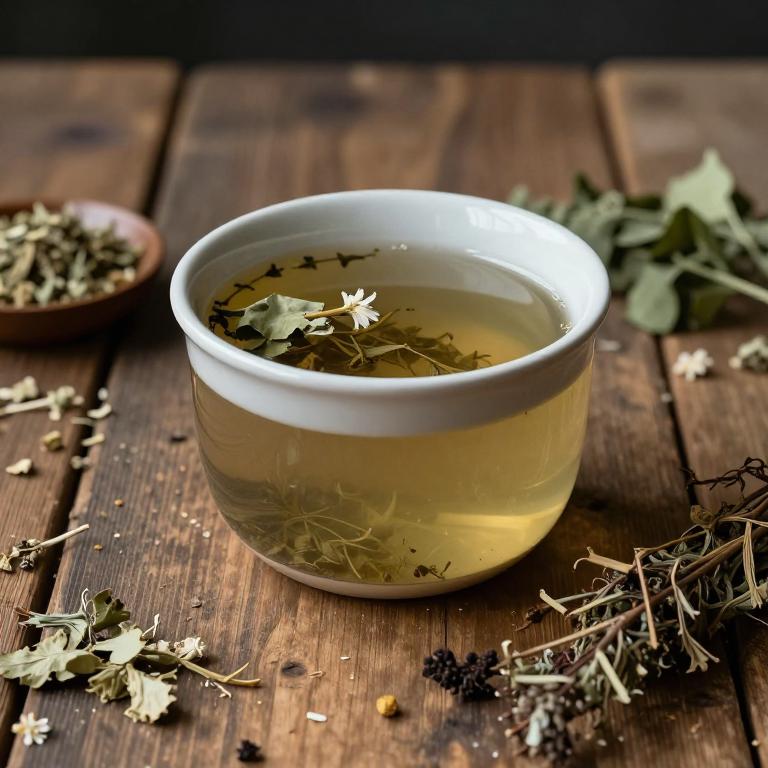
Passiflora incarnata, commonly known as passionflower, is a herbal remedy traditionally used to alleviate symptoms of stress and anxiety.
Its active compounds, including flavonoids and alkaloids, are believed to interact with the central nervous system to promote relaxation and calmness. Passionflower herbal decoctions are typically prepared by steeping the dried leaves and flowers in hot water, creating a soothing tea that can be consumed regularly. Studies suggest that this herb may help reduce the physiological effects of stress, such as elevated heart rate and muscle tension.
However, it is important to consult with a healthcare provider before use, especially for individuals taking medications or with existing health conditions.
3. Licorice (Glycyrrhiza glabra)

Glycyrrhiza glabra, commonly known as licorice root, has been traditionally used in herbal medicine for its potential calming effects on the body and mind.
Herbal decoctions made from licorice root are believed to support adrenal function and help the body manage stress more effectively. The active compounds in licorice, such as glycyrrhizin and flavonoids, may contribute to its adaptogenic properties, which help the body resist stressors. However, prolonged use of licorice root decoctions can lead to side effects like hypertension due to its mineralocorticoid-like effects.
As a result, it is often recommended to use licorice root under the guidance of a healthcare professional, especially for individuals with pre-existing health conditions.
4. Chamomile (Matricaria chamomilla)
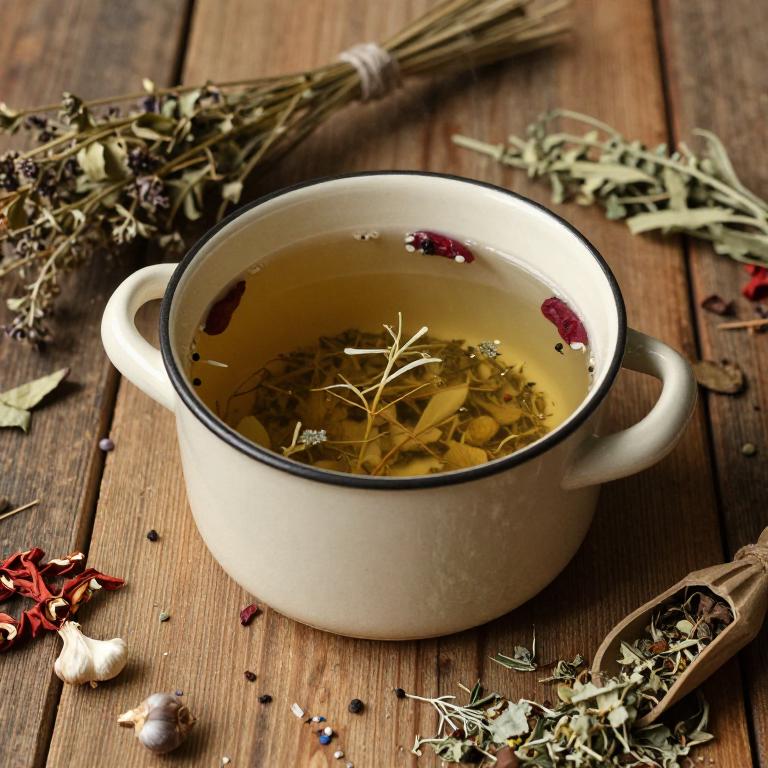
Matricaria chamomilla, commonly known as chamomile, is a widely used herbal remedy known for its calming properties.
Chamomile herbal decoctions, made by steeping the dried flowers in hot water, are often consumed as a tea to help alleviate stress and promote relaxation. The active compounds in chamomile, such as apigenin, are believed to interact with brain receptors that reduce anxiety and induce a soothing effect. Studies suggest that regular consumption of chamomile decoctions can help lower cortisol levels and improve sleep quality, both of which are closely linked to stress management.
As a natural and accessible remedy, chamomile decoctions are a popular choice for those seeking to manage daily stress without relying on pharmaceutical interventions.
5. St. john's wort (Hypericum perforatum)

Hypericum perforatum, commonly known as St. John's Wort, has been traditionally used for its calming effects and is often prepared as a herbal decoction to help manage stress.
This herb contains active compounds such as hypericin and hyperforin, which are believed to influence neurotransmitter levels in the brain, potentially improving mood and reducing anxiety. To make a decoction, the dried leaves and flowers are boiled in water for several minutes, then allowed to steep for a longer period to extract the beneficial compounds. The resulting infusion is typically consumed in small doses throughout the day to support emotional balance.
While it can be effective for mild to moderate stress, it is important to consult a healthcare professional before use, as it may interact with other medications.
6. Heartworts (Leonurus cardiaca)
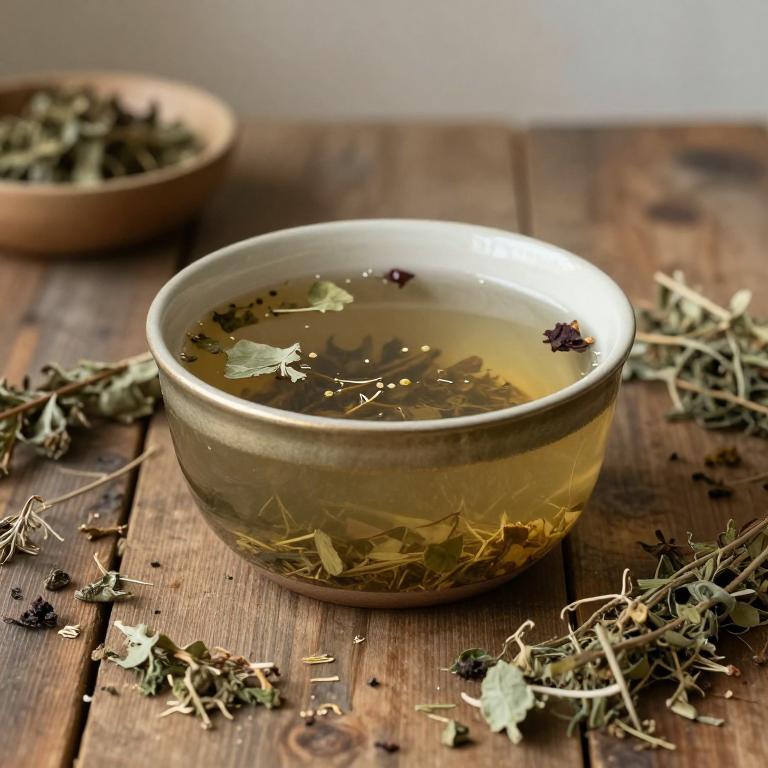
Leonurus cardiaca, commonly known as Motherwort, has been traditionally used in herbal medicine for its calming and stress-reducing properties.
Herbal decoctions made from the dried leaves and flowers of Leonurus cardiaca are often prepared by simmering the plant material in water for several minutes, resulting in a soothing tea. This preparation is believed to help alleviate anxiety, promote relaxation, and support emotional balance by influencing the nervous system. The herb contains compounds such as flavonoids and iridoids, which may contribute to its anxiolytic effects.
While generally considered safe when used in moderation, it is advisable to consult a healthcare professional before incorporating Leonurus cardiaca into a stress management regimen.
7. Scutellaria (Scutellaria lateriflora)
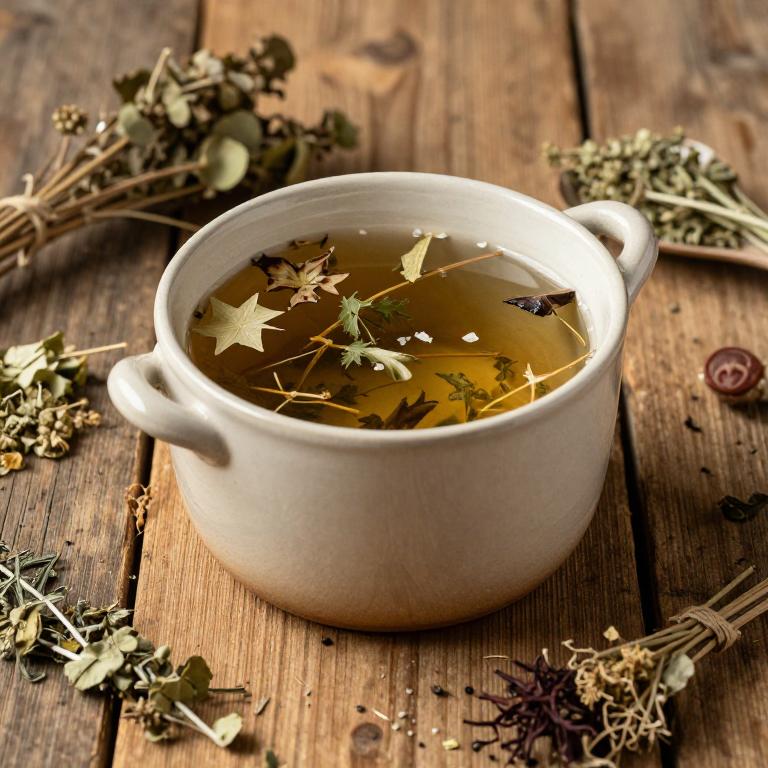
Scutellaria lateriflora, commonly known as blue flag or skullcap, is a traditional herbal remedy used for its calming properties.
Herbal decoctions made from Scutellaria lateriflora are often prepared by simmering the dried roots or leaves in water, allowing the active compounds to be extracted. These decoctions are believed to support the nervous system and help alleviate symptoms of stress and anxiety. The herb contains flavonoids and alkaloids, which may contribute to its anxiolytic effects.
While research suggests potential benefits, it is important to consult a healthcare provider before using Scutellaria lateriflora, especially for individuals with existing medical conditions or those taking medications.
8. Kava (Piper methysticum)
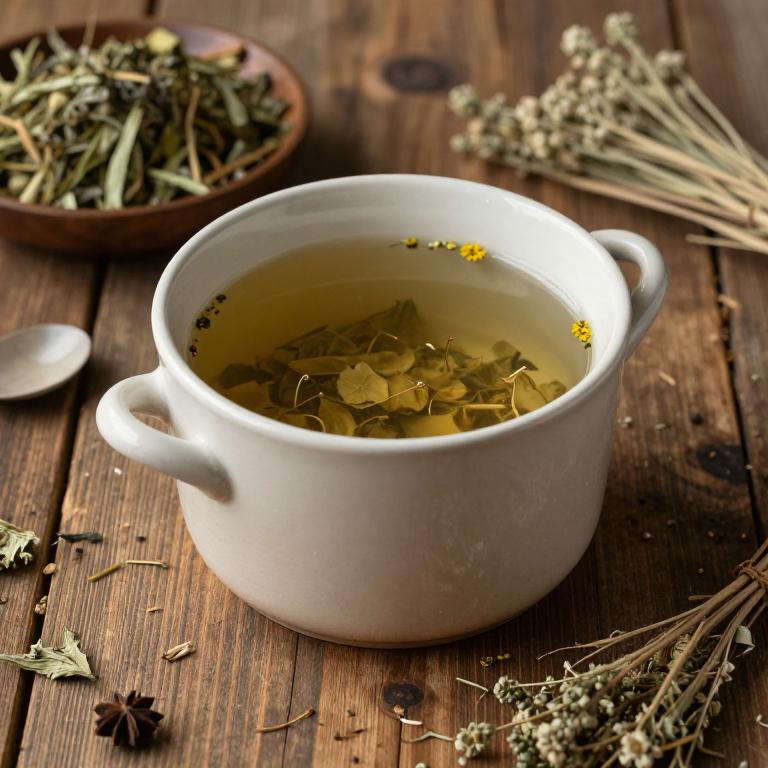
Piper methysticum, commonly known as kava, has been traditionally used in the Pacific Islands for its calming effects, and its herbal decoctions are increasingly recognized for their potential to alleviate stress.
The preparation involves soaking the dried roots of the plant in water to create a soothing beverage, which is often consumed during social gatherings or rituals. The active compounds in kava, such as kavalactones, are believed to interact with the central nervous system to reduce anxiety and promote relaxation. Studies suggest that regular consumption of kava decoctions may help manage stress-related symptoms without the sedative side effects associated with other tranquilizers.
However, it is important to use kava responsibly, as excessive or long-term use can lead to adverse effects, and it should be approached with caution and under professional guidance.
9. Chaste tree (Vitex agnus-castus)

Vitex agnus-castus, commonly known as chasteberry, has been traditionally used in herbal medicine to support hormonal balance and alleviate stress-related symptoms.
Herbal decoctions made from the berries of this plant are often prepared by simmering the dried fruit in water for several minutes, allowing the active compounds to be extracted. These decoctions are believed to influence the hypothalamic-pituitary-adrenal (HPA) axis, which plays a key role in the body's response to stress. Studies suggest that vitex may help reduce cortisol levels and improve mood, making it a popular choice for managing stress and anxiety.
However, it is important to consult with a healthcare provider before using vitex, especially for individuals with hormone-sensitive conditions or those taking medications.
10. Oat (Avena sativa)
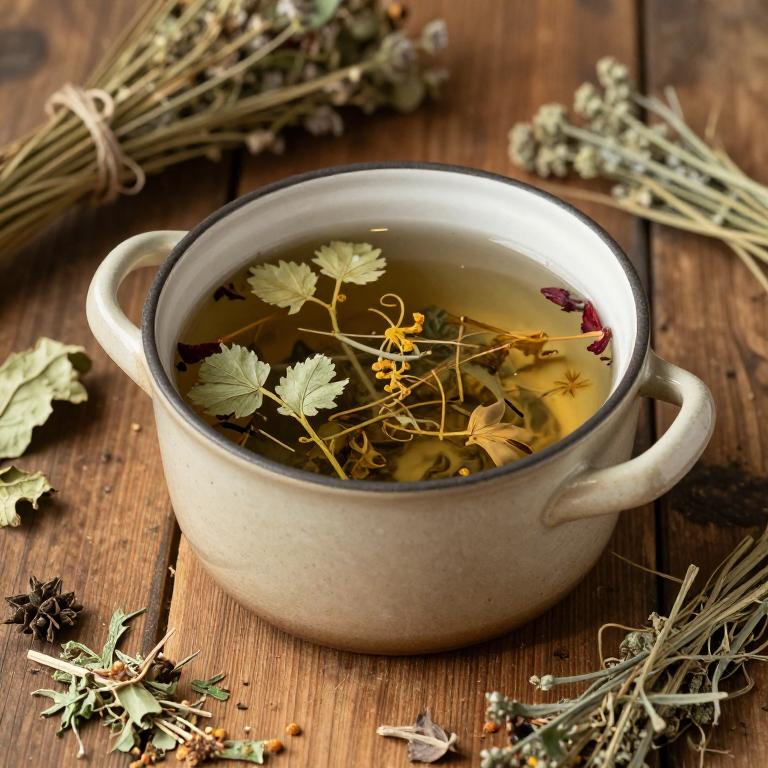
Avena sativa, commonly known as oat straw, is often used in herbal decoctions to help alleviate symptoms of stress and promote relaxation.
The preparation typically involves simmering the dried oat straw in water for an extended period to extract its beneficial compounds. This herbal remedy is believed to support the nervous system and may help reduce anxiety and irritability. Its mild and soothing properties make it a popular choice for those seeking natural stress relief.
While more research is needed, many individuals report feeling calmer and more centered after regular use of oat straw decoctions.